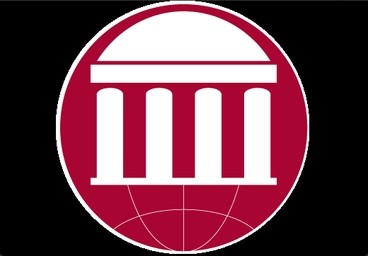How do we balance national security and privacy in an age when the government can access virtually all of our electronic communications?
That question hit the public sphere with new force in June, when former U.S. intelligence contractor Edward Snowden disclosed, largely via the British newspaper The Guardian, new material about the extent of the surveillance operations undertaken by the National Security Agency (NSA).
Six months later, a public forum held at MIT on Thursday showed that fault lines exist even among highly placed former government officials. Joel Brenner, a former general counsel for the NSA, largely defended an agency whose workers are, he said, “tasked with finding terrorists they don’t yet know about,” and thus in need of copious data.
On the other hand, former U.S. ambassador to Saudi Arabia Chas Freeman sounded a sharply critical note, decrying the “cancerous growth of the government surveillance apparatus,” which he described as “only tangentially related to national security.”
What the principals agreed on, generally, was the need for a more vigorous public discussion of the topic. Brenner asserted that the agency’s efforts have been legal and suggested that the disclosure of its programs years ago would have pre-empted the current controversy.
“We are in the midst of a very unusual, I think unique, intelligence affair,” Brenner said, noting that most previous intelligence scandals have involved failures to warn government officials of incipient military strikes, or abuses of well-known legal standards. Instead, Brenner asserted, “It’s the first time we have an intelligence scandal involving an agency that’s done what it was legally authorized to do.”
The legality of the NSA’s activities, and the secretive process used to establish those legal foundations, has been a major source of controversy. However, Brenner recounted, soon after he joined the NSA in 2002, he learned about the surveillance programs, and suggested to other officials that Congress should add them to its Foreign Intelligence Surveillance Act (FISA), passed in 1978, which bans domestic spying in the U.S. without probable cause that the surveillance target represents a foreign power.
“The unity in the country behind the fundamental authorities of the intelligence business is a strategic goal,” Brenner said. “I mean, intelligence involves secret, powerful institutions in a political culture that is deeply hostile both to power and secrecy. The only way you square that circle is when the public understands what the broad rules are, and has reason to believe they’re being followed.”
Freeman, by contrast, criticized the tight limits the executive branch of government has placed on discussion of its data-gathering activities, even among the members of Congress who are supposed to be overseeing it.
Snowden’s disclosures, Freeman said, were intended to make the point that “we Americans now live under a government that precludes legal or political challenges to its own increasingly deviant behavior.”
Out of the ‘goldfish bowl’
The panel discussion, titled, “The ‘Snowden Affair:’ Intelligence and Privacy in a Wired World,” was hosted by MIT’s Center for International Studies (CIS) and held in MIT’s Media Lab before a capacity audience of about 200 people. It was part of CIS’s regular Starr Forum series of panels on pressing topics in the international arena.
The panel was moderated by Adm. William Fallon, a CIS scholar and the former head of CENTCOM, the U.S. military command overseeing the Middle East, Central Asia, and parts of East Africa. Fallon also served previously as head of the U.S. Pacific Command.
“We are in a decidedly different world, in the business of intelligence and national security, than we were just a few years ago when I was on active duty, in that the leapfrogging advances in technology enable so many more things to occur,” said Fallon, who was head of the U.S. Pacific Command from 2005 to 2007, and head of CENTCOM in 2007 and 2008.
Freeman, for his part, said his views had been profoundly shaped by his experiences as a diplomat and defense department official, a period during which his overseas travel was closely monitored by foreign countries.
“For 30 years I was a consumer of intelligence, as well as a producer of it,” Freeman said. “I was also a victim of it. Every bedroom I ever stayed in [as a diplomat] had cameras in the walls and microphones as well.” Having experienced that, he added, “I have a strong view that ordinary Americans, or people not associated with government officialdom, should not have to live their lives in the goldfish bowl that I did.”
Panelist Susan Chira, an assistant managing editor at The New York Times who specializes in international coverage, added that the media had a significant responsibility to push for disclosures concerning such government activities.
 “Transparency leads to accountability,” said Chira, who questioned the independence of the court tasked with approving the NSA’s requests for domestic surveillance.
“Transparency leads to accountability,” said Chira, who questioned the independence of the court tasked with approving the NSA’s requests for domestic surveillance.
In response, Brenner said, “It is not a rubber stamp,” adding, “The court is very tough.”
As former government officials, Brenner, Fallon, and Freeman all expressed uneasiness with Snowden’s actions, saying that such disclosures made the work of intelligence agents, diplomats, and the military harder, although Freeman was willing to defend Snowden to a significant extent.
“As someone long in service to our country, I am upset by such defiance of authority,” Freeman said. “But as an American, I am not.”



